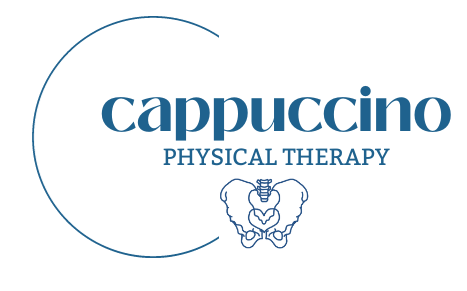Frequently Asked Questions
-
We are a team of pelvic floor physical therapists who SPECIALIZE in treating pelvic floor dysfunction. We are not just dabbling in the field. All of our certifications and continuing education is focused on the pelvic floor.
-
Absolutely not. In fact, Kegels can make things worse, especially if you are coming in for a pain condition. Most people have overactive pelvic floors and need to learn how to relax them, which is the opposite of Kegels. So if you have been doing 100s of Kegels a day and seeing no improvement, it’s likely you need pelvic floor relaxation instead.
-
All of our treatments are one hour long with the same Doctor of Physical Therapy. You will never be passed off to an aide or an assistant after just 20 minutes with a therapist like other clinics do. We want to make sure you are getting the best quality care possible so you have your physical therapist’s undivided attention for one hour.
-
No way. The pelvic floor is SO much more complex than being hooked up to a machine to do Kegels. We will watch you perform the activities that cause you symptoms, teach you exercises to strengthen the pelvic floor without Kegels, and also teach you how to relax the pelvic floor. Kegel machines will never address the root cause of your symptoms.
-
No! In California, we have something called Direct Access which allows us to see you without a prescription. When you come in for your first visit, we will fax your plan of care to your provider for them to sign.
-
It’s never too late to seek care for pelvic floor dysfunction whether your baby is 8 months old or 8 years old! Some chronic issues take longer to treat than others, but all pelvic floor issues can be addressed at Cappuccino Physical Therapy.
-
Absolutely! We treat women of all ages regardless of childbirth status.
-
Your muscles and joints go through significant changes during pregnancy. At Cappuccino Physical Therapy, we can help alleviate any pregnancy related aches and pains through manual therapy, therapeutic exercise, and postural corrections. We provide guidance on exercise modifications for each trimester to allow you to exercise safely throughout pregnancy. Pelvic floor PT is also necessary for labor and delivery preparation to help reduce the risk of tearing. This includes learning to relax the pelvic floor, perineal massage, hip and pelvic mobility, labor and delivery positions, breathing techniques, pushing practice, and extensive childbirth education.
-
Delivering a baby is trauma to your body and requires injury recovery regardless of delivery method. Your pelvic floor muscles stretch one to three times their resting length during vaginal delivery which can result in pelvic floor dysfunction. Many women experience some form of urinary incontinence postpartum. These issues can be mitigated with pelvic floor PT. If you tore your hamstring, you would be prescribed physical therapy right away. The same should be true of a vaginal delivery.
-
A cesarean section is a major abdominal surgery affecting multiple layers of tissue. Scar tissue can develop in these layers which can decrease abdominal mobility and function and increase abdominal and pelvic pain. Diastasis Recti Abdominis (DRA) is also common after a C-section. At Cappuccino PT, we focus on abdominal strengthening and scar tissue mobilization. After a major knee surgery, you would be prescribed PT to improve strength and mobility, and the same should be true for a C-section.
-
Your pelvic floor and abdominal muscles can take up to 6 months to fully recover from childbirth. If these muscles are weak, they might not function properly during high impact activity which could lead to pelvic floor dysfunction. A gradual return to high impact exercise is encouraged, and our Pelvic Floor Physical Therapists can help progress you.
